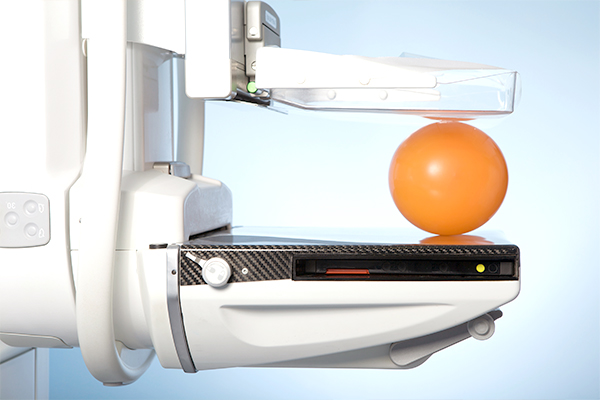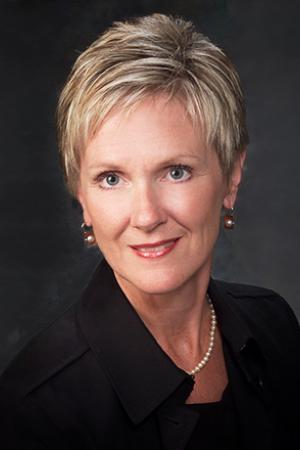
The American Cancer Society has released new guidelines for Mammogram Screenings. We know you’ve likely read a lot about it. I thought I’d hand it over to our old friend and writer Julie, a longtime MiddlesexMD blogging pal, who has breasts of her own and some thoughts to share.
Bottom line—understand your family history and know your risks and how your risk of risk of developing breast cancer can change from year to year.
*****
Guideline Headlines!!! Okay girls! Grab them and run! But which way! When? Where? But wait!!! No!
No? These guidelines are saying to maybe squish less often? For some of us? Really? To not start so soon? Who are these people?
I’m confused.
With the latest release of Breast Cancer screening guidelines from the American Cancer Society, it’s easy to feel a little—entangled—in questions of when and whether to handle our screenings. And no wonder. The discussions are very much in the air, and the experts are agreeing to disagree. Very politely.
It wasn’t the intention of the committee to create this confusion, of course. They truly wanted to offer up more leeway in guidelines, particularly for women with average risk of developing breast cancer—and that’s most of us. But leeway is very hard for most of us to interpret. Most of us just want very clear direction. We want safety and assurance. We want to avoid unnecessary exposure to radiation and unnecessary medical procedures. That’s not too much to ask, is it?
Well, we can’t have absolute assurances from medical guidelines. It would be so nice if we could. We can only get the best advice from smart committees working from what data they have to keep the greatest number of us safe most of the time.
So the new guidelines ease up on the youngest women, aged 40-45, saying they don’t need to start screening if they have average to low risk of breast cancer. Of course we women in menopause are already screening our breasts, have been at it for years by now. Now we are wondering what to tell our daughters. And we will be getting different advice from at least three of the six breast-cancer-guideline-writing organizations in the US alone.
In fact all of those concurrent guidelines exist out there already, in our doctors’ heads. And online. And in our restless heads and hearts. So what do we do with all of this various information?
First… We breathe. Then… We remember, that we are each in charge of our own bodies. Guidelines are there just as a framework of reference. In practice, we each are working on our particular realities, which must be dealt with in the particular, with a plan that takes in all of the unique, unusual, specific aspects of our own bodies, or our daughter’s, their daughter’s.
So, I’ll take me, for example.
Those guidelines would suggest, since my breasts have been around for 55 years (well, one of them. The other seems much, much older), and in my family there is no history of breast cancer at all, and I have no current cancer markers, good and good. But… I’ve had so many surgeries and lung problems, my chest has been radiated enough in my lifetime to light up Tokyo on a moonless night, which is not so good, and I’ve had to have a few lumps biopsied here and there, which have markers they like to peek at now and again, so….. Yeah I’m signed up for annual scans. Am I worried? Not really. But I’m committed. My sister, with the same family history, may logically choose to scan less often. Because she’s been much healthier throughout her life.
A young relative in my family? Just turned 40. Did she need to go for her first exam? Not really, but she and her friends made a party of it at the local breast exam clinic. Wine and bites and breast squashing in paper robes. She could have put it off another 5 years, but she prefers to get this ball rolling. Preference plays a roll here. She is being cautious.
You see how this rolls. Family history + conference with your physician over your own medical history + your own ideas and feelings about medical tests at this time in your life, taken together with a careful review of the recommendations = your best plan for screening. That plan for screening? It changes year over year as you age. That’s how you do this. Review your plan each year for you. Discuss it with the women in your family. And your friends. Like. Discuss it. Out loud. Over coffee or tea. Like, “What’s your breast scan plan, Mom?” Like that. It’s not rude. No. It’s not. Happy deciding, everyone.
*****
If you'd like to talk more about your personal and family health history and how it impacts your lifetime risk of developing breast cancer, Holland Hospital's High Risk Breast Clinic is here for that reason. For an appointment, call me at (616) 355-3820.
Caring for you and your breasts,
Dr. Barb
Bottom line—understand your family history and know your risks and how your risk of risk of developing breast cancer can change from year to year.
*****
Guideline Headlines!!! Okay girls! Grab them and run! But which way! When? Where? But wait!!! No!
No? These guidelines are saying to maybe squish less often? For some of us? Really? To not start so soon? Who are these people?
I’m confused.
With the latest release of Breast Cancer screening guidelines from the American Cancer Society, it’s easy to feel a little—entangled—in questions of when and whether to handle our screenings. And no wonder. The discussions are very much in the air, and the experts are agreeing to disagree. Very politely.
It wasn’t the intention of the committee to create this confusion, of course. They truly wanted to offer up more leeway in guidelines, particularly for women with average risk of developing breast cancer—and that’s most of us. But leeway is very hard for most of us to interpret. Most of us just want very clear direction. We want safety and assurance. We want to avoid unnecessary exposure to radiation and unnecessary medical procedures. That’s not too much to ask, is it?
Well, we can’t have absolute assurances from medical guidelines. It would be so nice if we could. We can only get the best advice from smart committees working from what data they have to keep the greatest number of us safe most of the time.
So the new guidelines ease up on the youngest women, aged 40-45, saying they don’t need to start screening if they have average to low risk of breast cancer. Of course we women in menopause are already screening our breasts, have been at it for years by now. Now we are wondering what to tell our daughters. And we will be getting different advice from at least three of the six breast-cancer-guideline-writing organizations in the US alone.
In fact all of those concurrent guidelines exist out there already, in our doctors’ heads. And online. And in our restless heads and hearts. So what do we do with all of this various information?
First… We breathe. Then… We remember, that we are each in charge of our own bodies. Guidelines are there just as a framework of reference. In practice, we each are working on our particular realities, which must be dealt with in the particular, with a plan that takes in all of the unique, unusual, specific aspects of our own bodies, or our daughter’s, their daughter’s.
So, I’ll take me, for example.
Those guidelines would suggest, since my breasts have been around for 55 years (well, one of them. The other seems much, much older), and in my family there is no history of breast cancer at all, and I have no current cancer markers, good and good. But… I’ve had so many surgeries and lung problems, my chest has been radiated enough in my lifetime to light up Tokyo on a moonless night, which is not so good, and I’ve had to have a few lumps biopsied here and there, which have markers they like to peek at now and again, so….. Yeah I’m signed up for annual scans. Am I worried? Not really. But I’m committed. My sister, with the same family history, may logically choose to scan less often. Because she’s been much healthier throughout her life.
A young relative in my family? Just turned 40. Did she need to go for her first exam? Not really, but she and her friends made a party of it at the local breast exam clinic. Wine and bites and breast squashing in paper robes. She could have put it off another 5 years, but she prefers to get this ball rolling. Preference plays a roll here. She is being cautious.
You see how this rolls. Family history + conference with your physician over your own medical history + your own ideas and feelings about medical tests at this time in your life, taken together with a careful review of the recommendations = your best plan for screening. That plan for screening? It changes year over year as you age. That’s how you do this. Review your plan each year for you. Discuss it with the women in your family. And your friends. Like. Discuss it. Out loud. Over coffee or tea. Like, “What’s your breast scan plan, Mom?” Like that. It’s not rude. No. It’s not. Happy deciding, everyone.
*****
If you'd like to talk more about your personal and family health history and how it impacts your lifetime risk of developing breast cancer, Holland Hospital's High Risk Breast Clinic is here for that reason. For an appointment, call me at (616) 355-3820.
Caring for you and your breasts,
Dr. Barb
